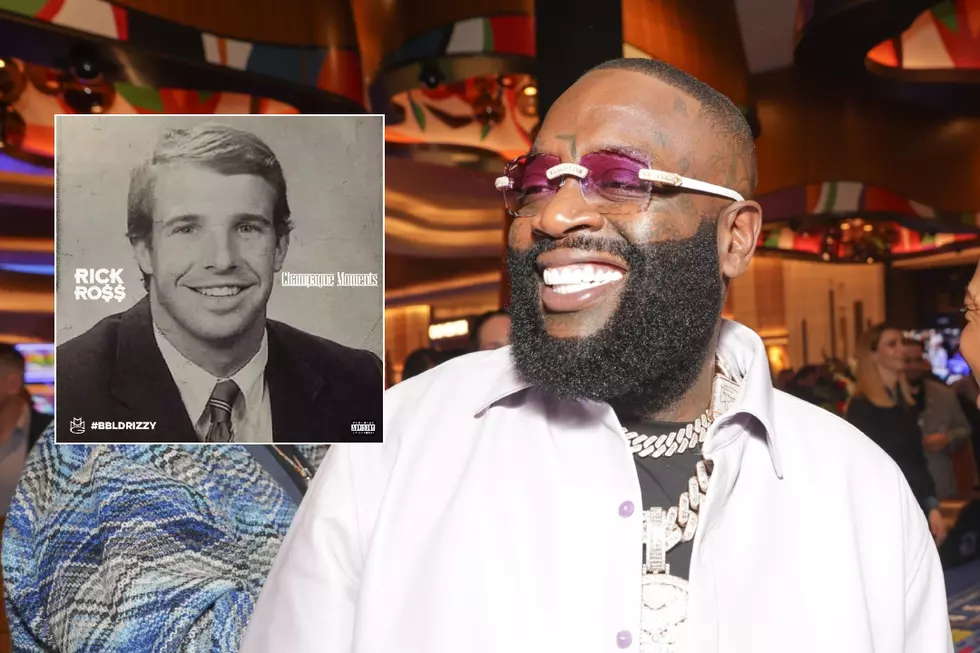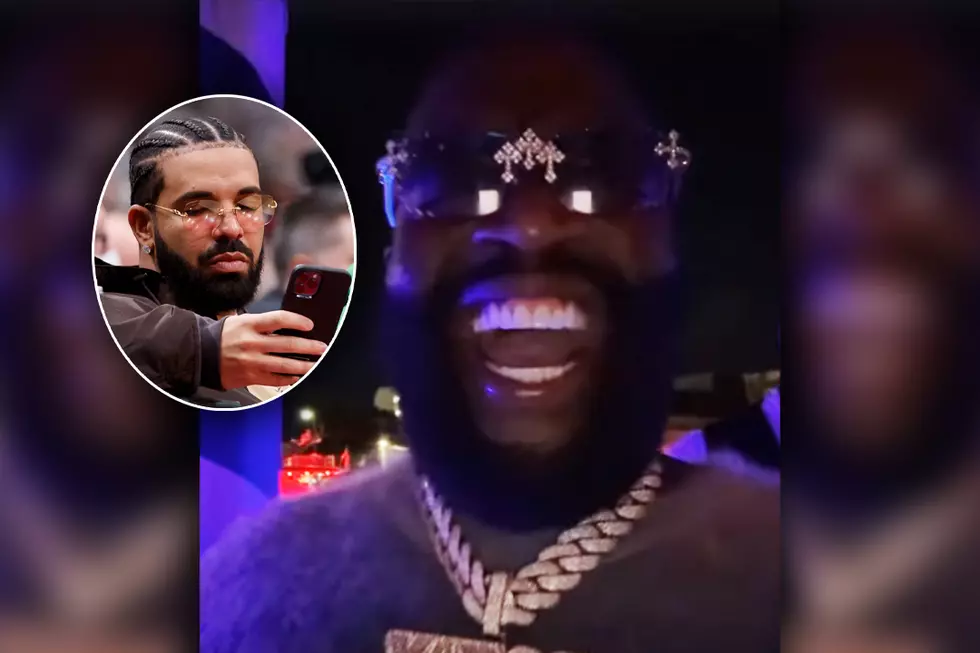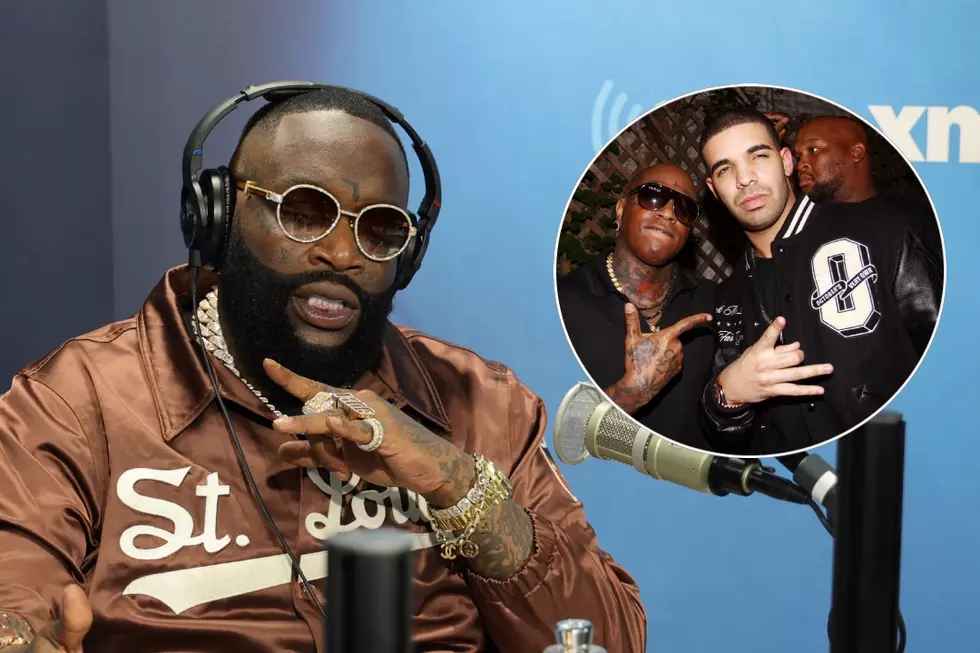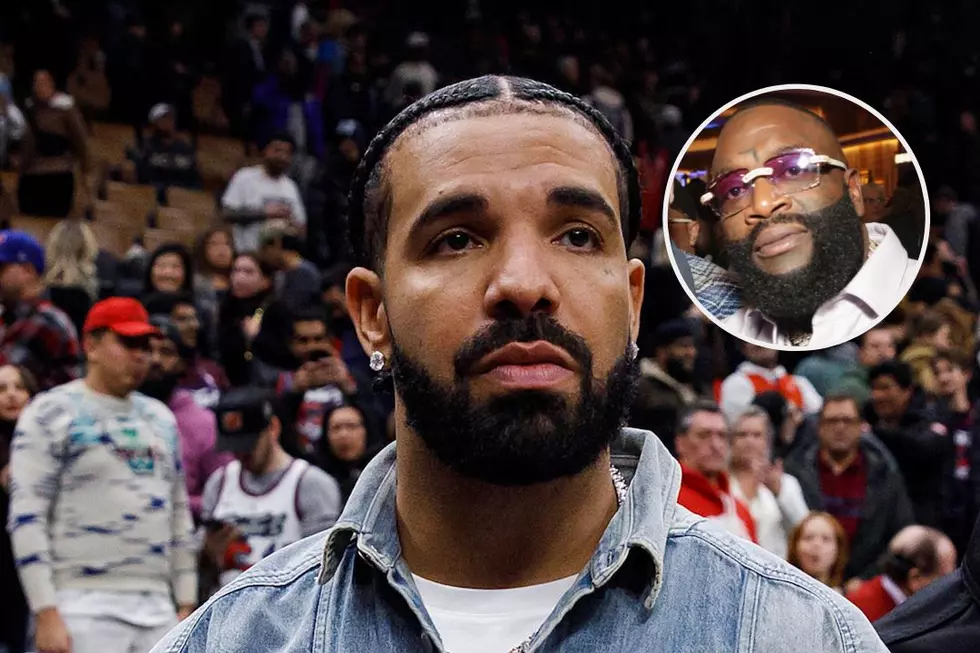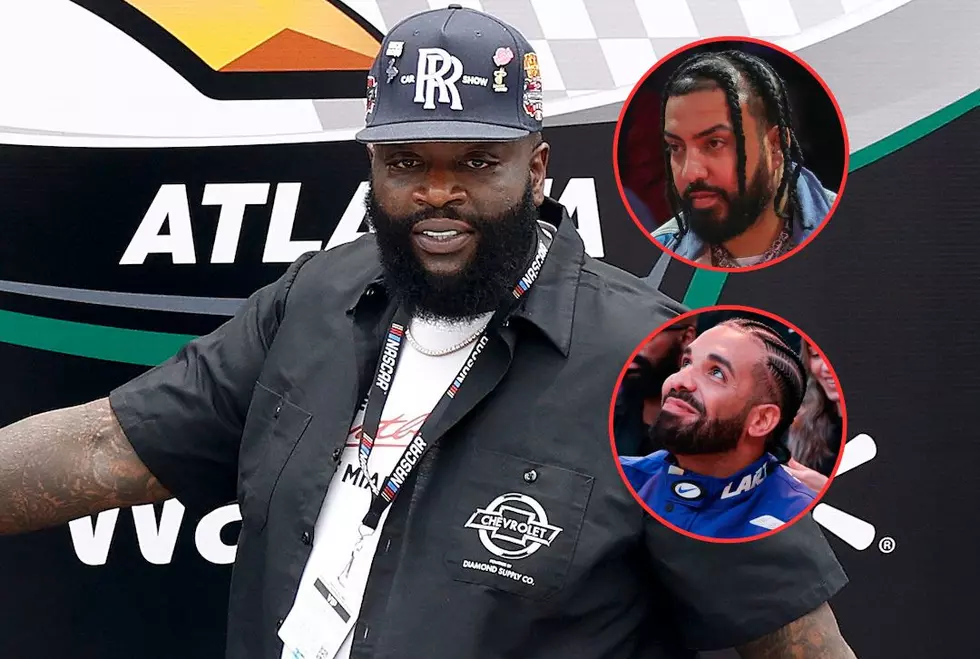
FEATURE: Rick Ross, Real Hard
Rick Ross came in with his sunglasses on. He’s one of those guys who wears them everywhere. Light ones. Dark ones. During the day. At night. In the studio. The man loves his shades. He owns about six for every day of the year, he says. He’d wear them even if he weren’t a celebrity. Even if this wasn’t hot-ass Miami. The better to not see you with.
Today, Ross’s perpetually smoke-reddened eyes are concealed behind a pair of midnight-black, vintage ’83 Targa Cazals—a name most of us, you know, regular people have never heard of. We’re at the tony Bal Harbour Shops, a low-rise outdoor mall with designer stores like Chanel, Hermès and Cartier, the perfect place to flaunt one’s wealth. Palm trees engulf the building’s cream exterior, and part of the ceiling is actual blue sky, the same color as Ross’s matching linen-shorts-and-shirt set. Ross has a month or so of promo ahead for his third album, Deeper Than Rap, not to mention a high-profile war raging with 50 Cent. He needs new luggage. Louis Vuitton it is. Carol Ann, a Louis saleswoman, helps him settle on two carry-ons.
Ross’s personal economy doesn’t seem to need a stimulus package, so he decided to pick up some other necessities. Like these $980 neon-graffiti-on-black sneakers from this season’s Steven Sprouse collection. Size 11. A younger Latina saleswoman tells “Mr. Ross” that if he’s in a club—she dances to demonstrate—the bottoms glow in the dark. “Oh, that’s even better,” says Ross. Sold. When Carol Ann tells him about the new white Evidence sunglasses about to come in (she must know of his fetish), he says to put him on the wait list.
“And I wanna know if I can get one of these for my house,” he says, indicating a pair of shiny black, neon-inscribed blocks sitting on a counter near the luggage display. Their purpose is a mystery. (Louis Vuitton paperweights?) It doesn’t look like they’re for sale.
He picks up a black T-shirt with, again, neon-green lettering that, looks way too small for his 300-some pounds. “I’ma let you in on a seeeecret,” he says, handing the shirt to his manager, Alex “Gucci Pucci” Bethune, VP of Poe Boy Entertainment. “What I do sometimes is, if I see a shirt that I really, really like, I buy it, even though it’s not my size, and I have my tailor get the same fabric and lift it and put it on there… It’s just like you almost just cuttin’ it out. Sometimes it actually make the shirt look better. Give it a little 3-D effect.”
Whatever he says. He’s the Bawse.
Like any other rapper, Ross has a taste for the finer things in life. But, lately, hip-hop heads have been wondering whether the things and the life he boasts about are real and whether his big-boss image is fabricated. All because of a bit of news thesmokinggun.com exposed on July 21, 2008—a date some rap fans jokingly mark as the death of Ross’s career. Before that, a photo had been floating around the Internet depicting a beardless 19-year-old Ross wearing a correctional officer’s uniform and shaking hands with a woman later identified as Marta Villacorta, who was then head of the South Florida Reception Center.
Initially, Ross claimed he was the victim of a Photoshop prank and continued to deny that he’d ever held such a job, until The Smoking Gun unearthed Florida Department of Corrections staff records including his government name and social security number. Finally, in a September interview with Don Diva magazine, he admitted that it was indeed him in the picture and that he was in fact employed as a prison guard. “I never tried to hide my past,” he said. “I put my name inside my CDs… I never ratted on a nigga. I never prosecuted a nigga. I never locked up a nigga.” Since then, he’s simply evaded the question.
True story: Rick Ross, William Leonard Roberts II, was a correctional officer for 18 months, starting in December 1995, at a salary of $22,913.54 a year. This might be fine for the average 9-to-5er, but by the time it came to light, Ross had sold millions of copies of two No. 1 hit albums—2006’s Port of Miami and 2008’s Trilla—largely on the strength of his image as a drug-trafficking bigwig in Miami’s Carol City. The C.O. past was like finding out Barney’s a pedophile, and, for a minute, Ross was rap’s Milli Vanilli, caught in a lie.
“Me not answering or addressing that situation has nothing to do with my career,” explains Ross, now sitting on a bench outside Oxygene Mini, a store that sells children’s clothes. “I’ve accomplished enough, and I’ve made enough money for me to be good… Yes, it was me in those pictures. But I’ma tell you this. Me taking that job, I was doing my job. You understand what I mean?”
Why didn’t you say in the first place that it was you? Why was it this ongoing thing where people didn’t know?
“Because, to me, it was no big deal, but, at the same token, there were other people that was involved in something else that was going on that—”
So you’re saying it was a street thing? The reason that you took the job?
“What I’m saying is, it’s certain things I can’t discuss, but what I’m telling you is—”
It’s not what it looks like?
“The truth is much more incriminating, on some street shit, than me worried about a fan or being ridiculed. I’m too big in the streets. I’ve never had a credibility problem and still don’t. Regardless of however anyone feel. But somebody just gotta read between the lines and understand you just don’t do certain things, and it’s… Shit’s deeper than rap.”-Clover Hope
For more of the Real Hard cover story, make sure to pick up XXL's May issue on stands nationwide April 7.
More From XXL
